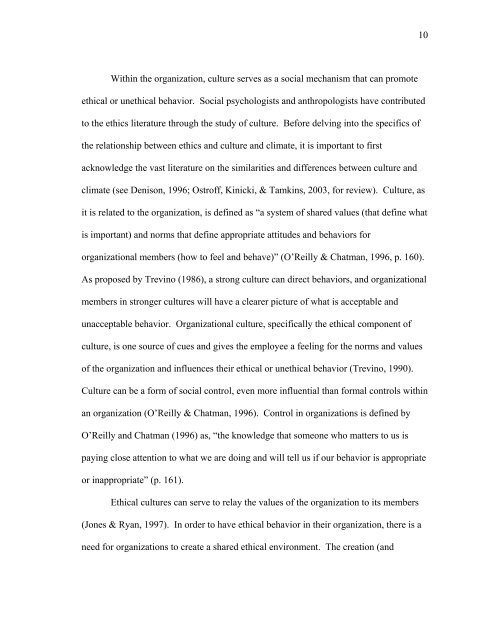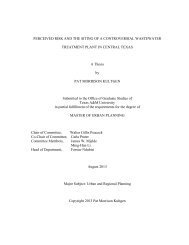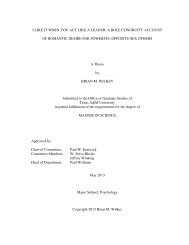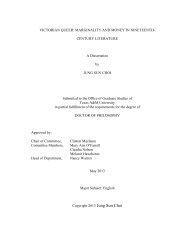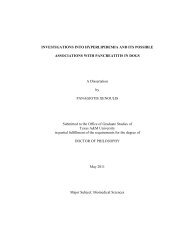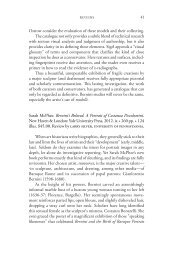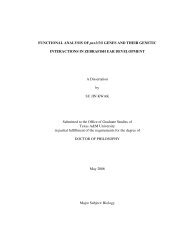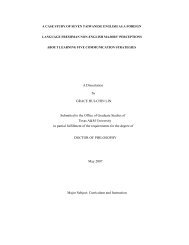THE EFFECT OF ETHICAL SIGNALS ON RECRUITMENT ...
THE EFFECT OF ETHICAL SIGNALS ON RECRUITMENT ...
THE EFFECT OF ETHICAL SIGNALS ON RECRUITMENT ...
You also want an ePaper? Increase the reach of your titles
YUMPU automatically turns print PDFs into web optimized ePapers that Google loves.
Within the organization, culture serves as a social mechanism that can promote<br />
ethical or unethical behavior. Social psychologists and anthropologists have contributed<br />
to the ethics literature through the study of culture. Before delving into the specifics of<br />
the relationship between ethics and culture and climate, it is important to first<br />
acknowledge the vast literature on the similarities and differences between culture and<br />
climate (see Denison, 1996; Ostroff, Kinicki, & Tamkins, 2003, for review). Culture, as<br />
it is related to the organization, is defined as “a system of shared values (that define what<br />
is important) and norms that define appropriate attitudes and behaviors for<br />
organizational members (how to feel and behave)” (O’Reilly & Chatman, 1996, p. 160).<br />
As proposed by Trevino (1986), a strong culture can direct behaviors, and organizational<br />
members in stronger cultures will have a clearer picture of what is acceptable and<br />
unacceptable behavior. Organizational culture, specifically the ethical component of<br />
culture, is one source of cues and gives the employee a feeling for the norms and values<br />
of the organization and influences their ethical or unethical behavior (Trevino, 1990).<br />
Culture can be a form of social control, even more influential than formal controls within<br />
an organization (O’Reilly & Chatman, 1996). Control in organizations is defined by<br />
O’Reilly and Chatman (1996) as, “the knowledge that someone who matters to us is<br />
paying close attention to what we are doing and will tell us if our behavior is appropriate<br />
or inappropriate” (p. 161).<br />
Ethical cultures can serve to relay the values of the organization to its members<br />
(Jones & Ryan, 1997). In order to have ethical behavior in their organization, there is a<br />
need for organizations to create a shared ethical environment. The creation (and<br />
10


